The Norray family, sister and brother-in-law to North Country Subaru owner Ken Lendrum, care for thousands of bees. In addition to beekeeping they harvest and distribute honey, assist aspiring beekeepers in cultivating their own farms via the sale of queens and worker bees, and educate the next generation about the habits of bees and their impact on the environment.
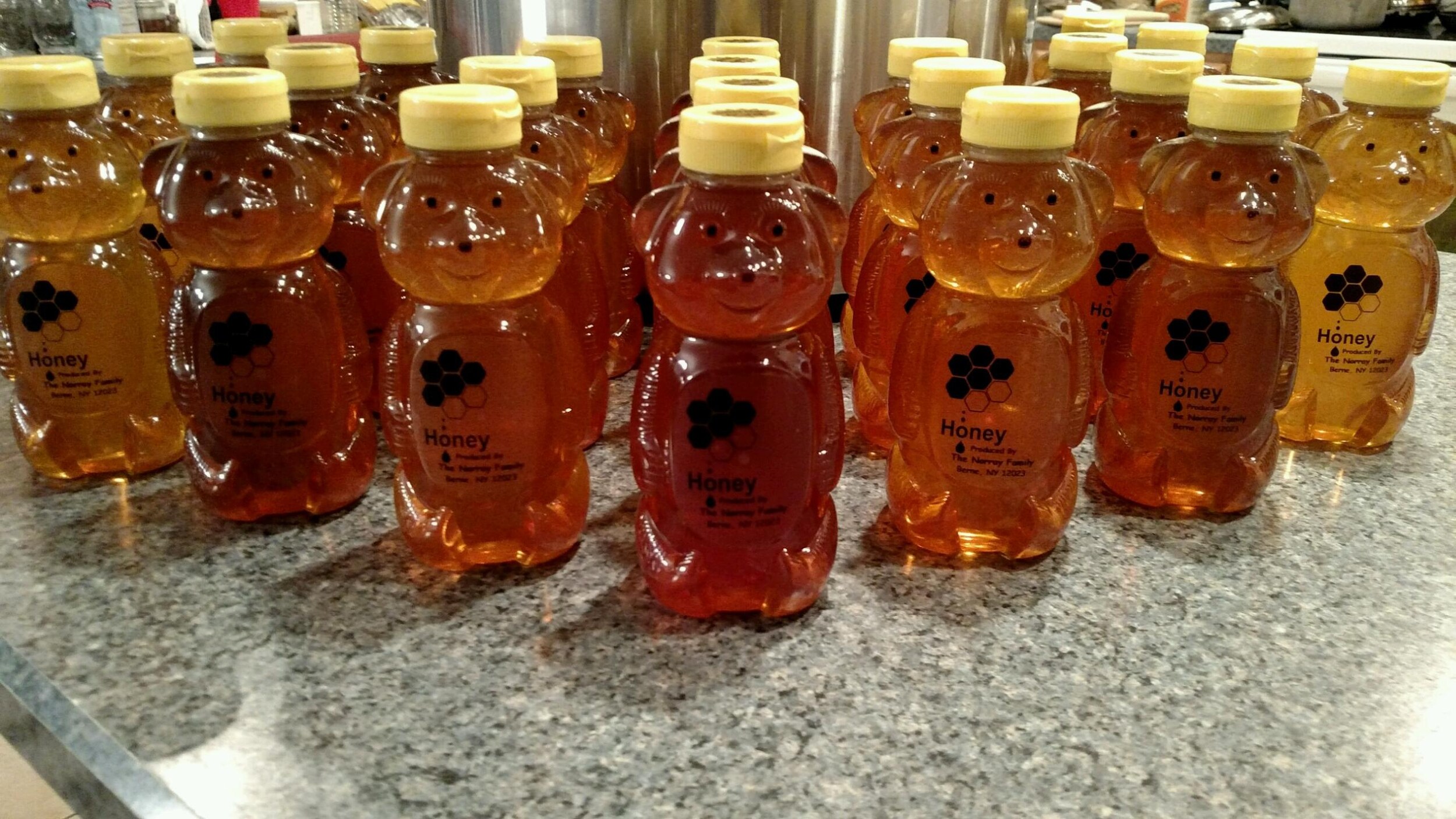
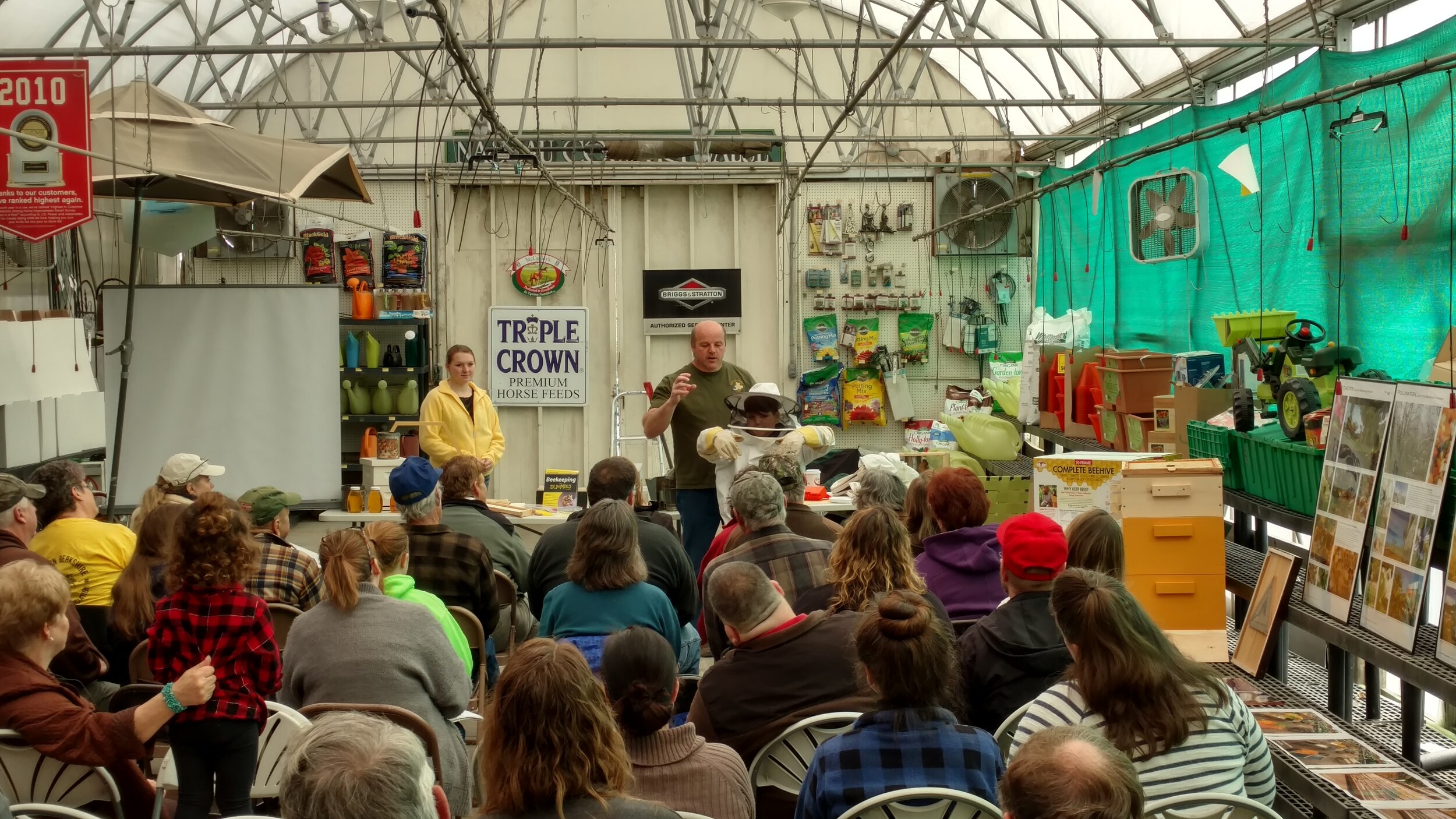
In addition to the benefits that our honeybees provide to the agricultural industry, they also provide similar pollination services to wild plants and flowers. Many of our trees, such as willow and poplar, benefit from the pollination services of honeybees, which help to preserve and spread our natural forests. The wealth of flowering plants that blanket the prairies owe much of their existence to the visits of the honeybees: in fact, many flowers evolved in conjunction with the bees. To remove the bees from the environment would mean the demise of many species of flowers and plants that we take for granted.
Many of the plants that our honeybees help to foster provide seeds,
fruit, and nuts that feed numerous animal species native to America. This
is an indirect benefit of honeybees, but a crucial one. If bees were
removed from the environment, not only would the plants suffer and
expire, but so would many natural animal species that depend upon those
plants for their own survival. Loss of honeybees would mean the collapse
of the natural ecosystem, so the value of bees aside from the simple
production of honey cannot be underestimated.
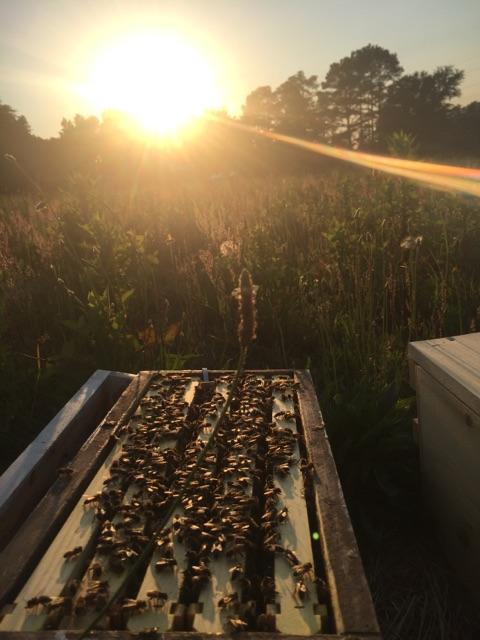
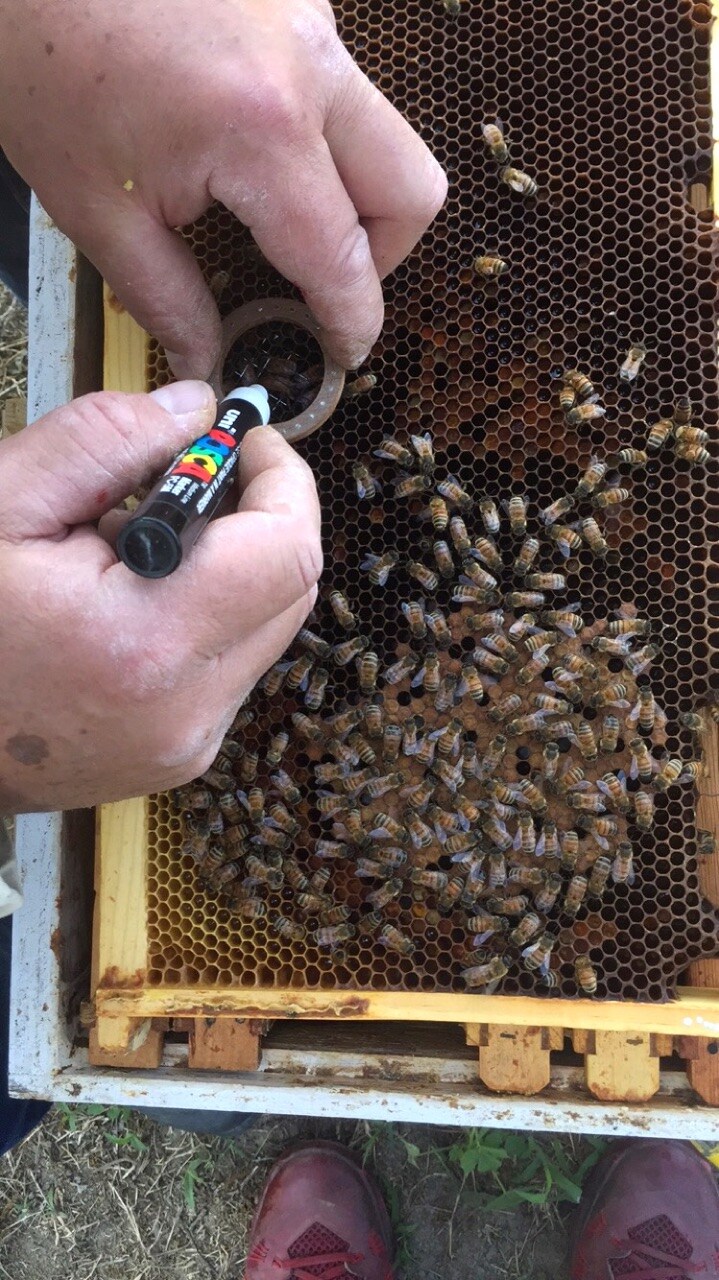
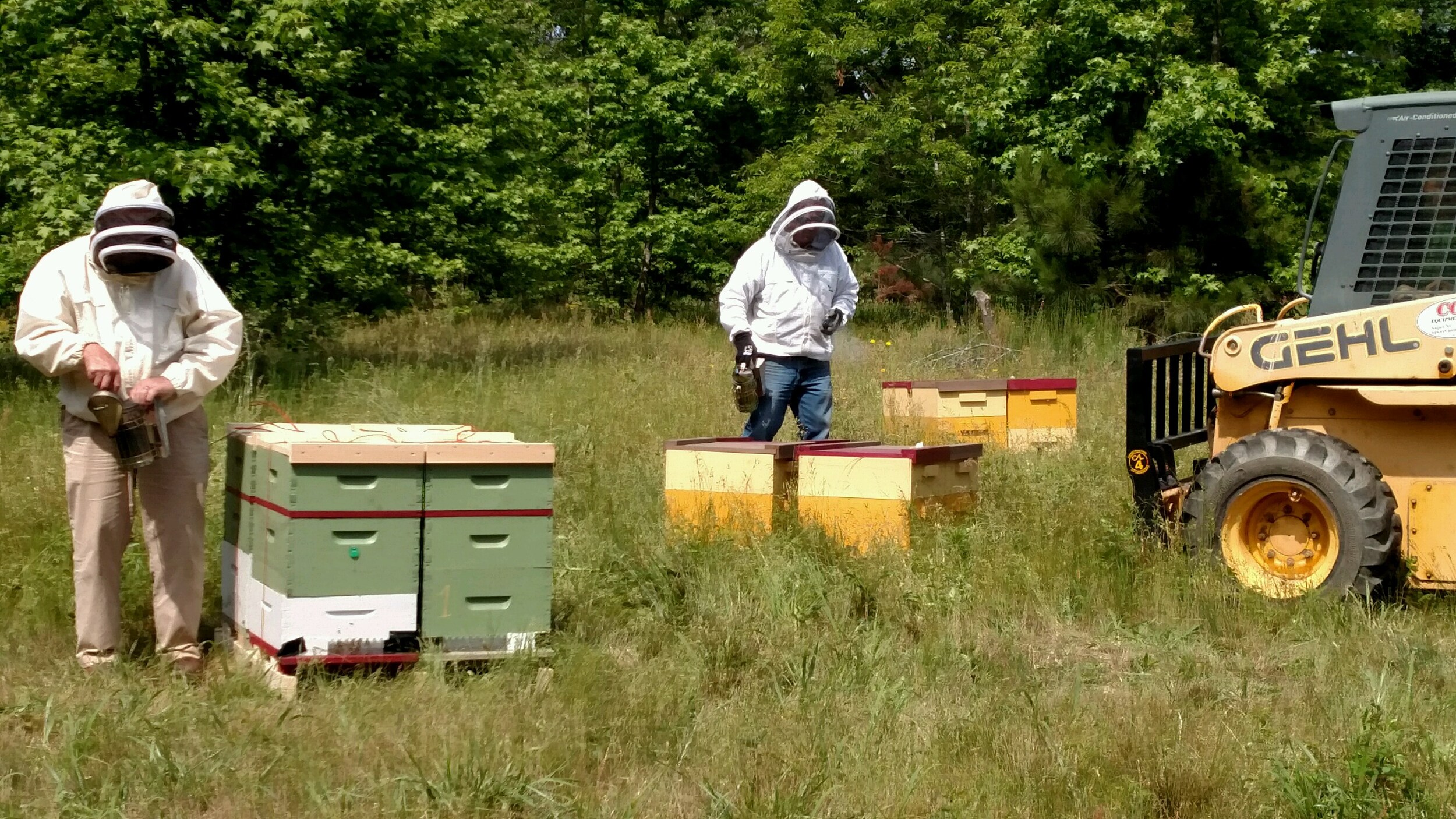
shipment of honey bees for transfer
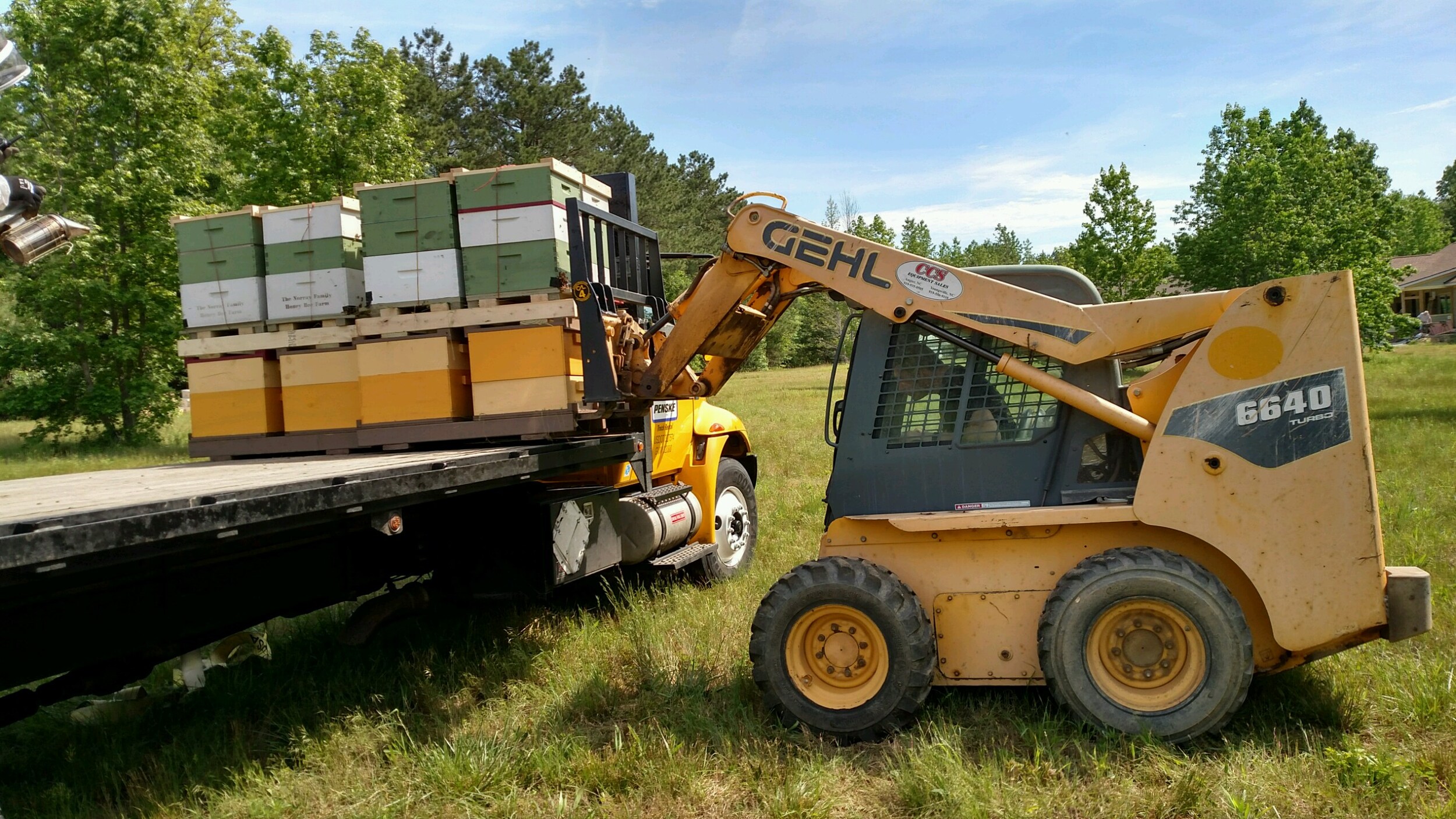
loading truck for shipment
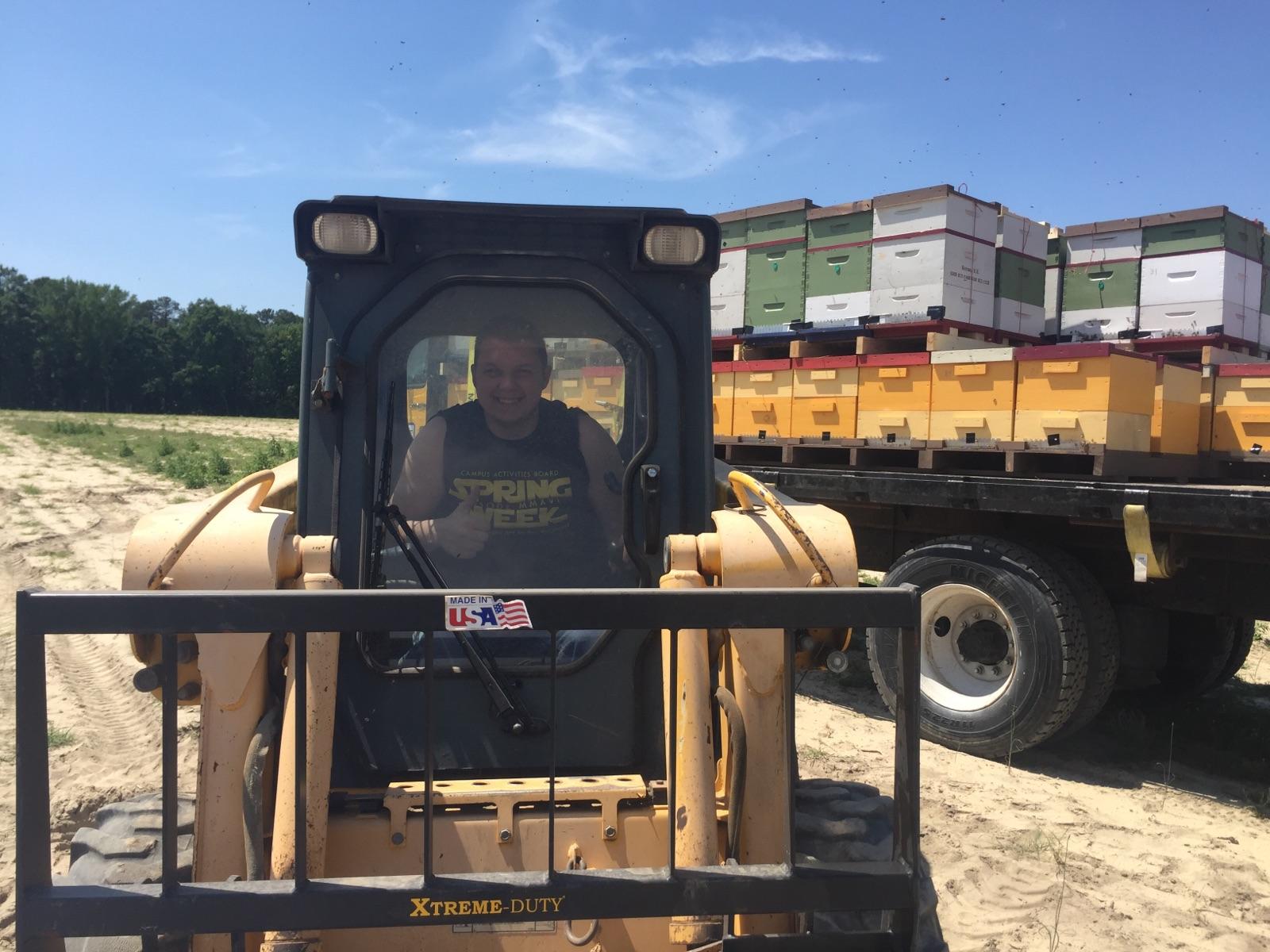
Maclin Norray is thrilled to be operating
the forklift for the first time
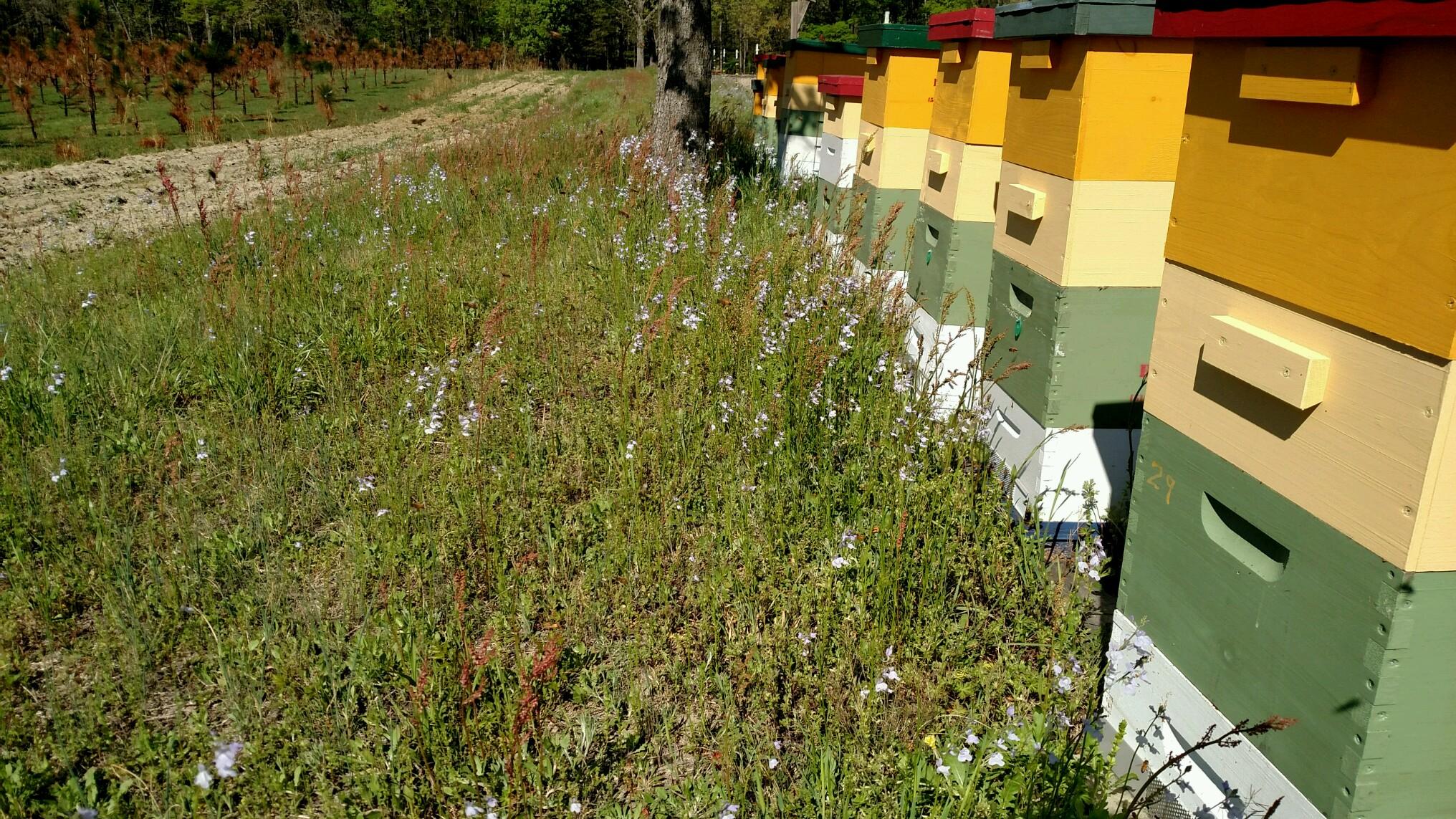
A view of the family farm

Bees are prepared for transfer at night
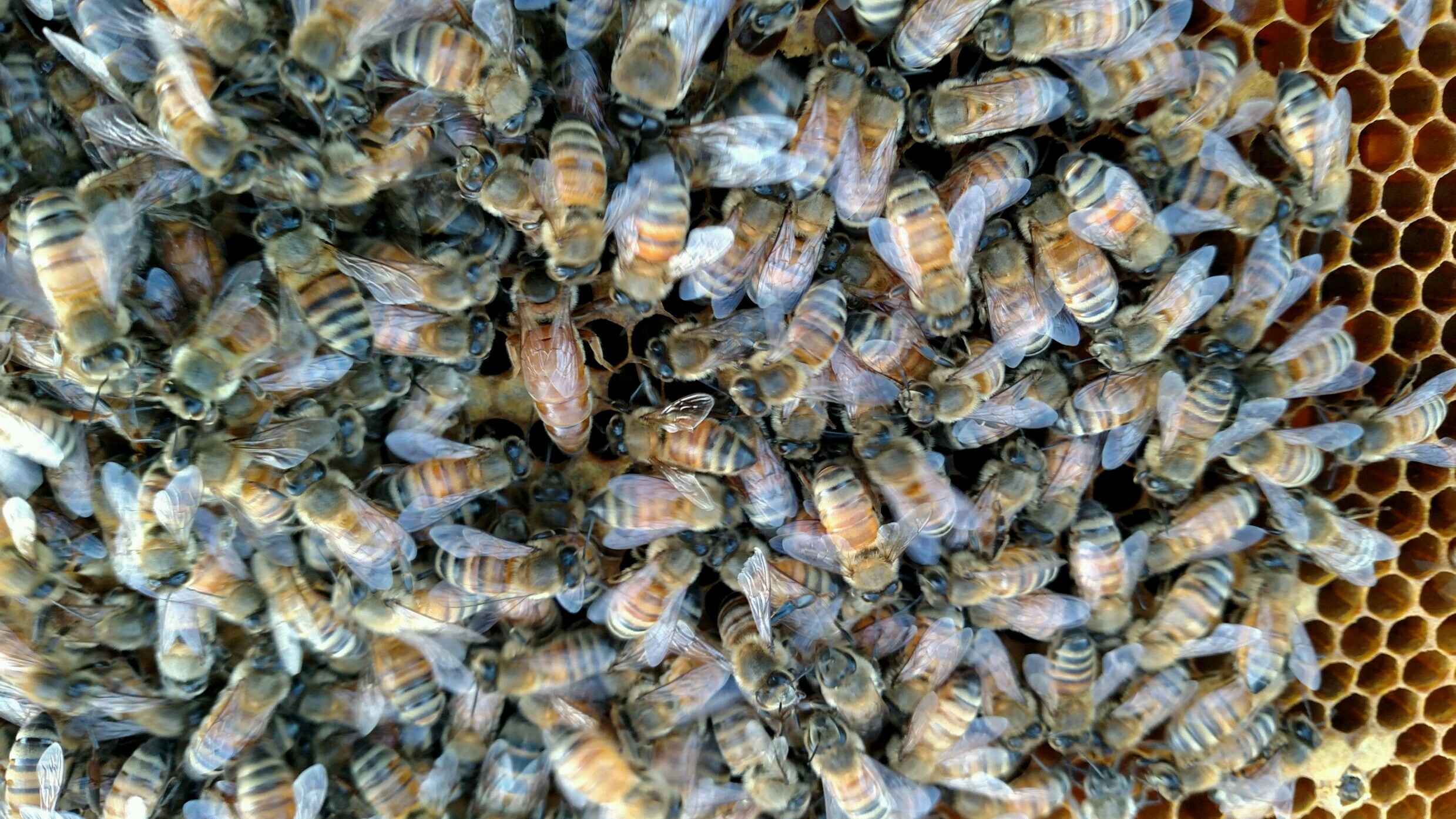
A close up of a honey bee colony




